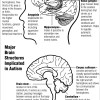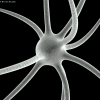The Autism-Vaccine Link and Trusting Science
 Almost twelve years after its original publication, The Lancet medical journal has formally retracted the infamous paper by Andrew Wakefield and colleagues that had posited a link between vaccines and autism. This follows a partial retraction in 2004, and succeeds the stern judgment by the UK General Medical Council’s Fitness to Practise Panel “that several elements of the 1998 paper by Wakefield et. al. are incorrect, contrary to the findings of an earlier investigation.”
Almost twelve years after its original publication, The Lancet medical journal has formally retracted the infamous paper by Andrew Wakefield and colleagues that had posited a link between vaccines and autism. This follows a partial retraction in 2004, and succeeds the stern judgment by the UK General Medical Council’s Fitness to Practise Panel “that several elements of the 1998 paper by Wakefield et. al. are incorrect, contrary to the findings of an earlier investigation.”
So that finally puts the autism-vaccination link to bed, right? Wrong. To read some responses in the blogosphere, one could assume that The Lancet had declared war on all humanity. In Natural News, Mike Adams writes that “The Lancet is doing exactly what George Orwell described in 1984 — rewriting history by obliterating scientific truth and removing it from their archives.” In the Age of Autism, Mark Blaxill refers to the General Medical Council’s judgment that precipitated the retraction as “deep and profound censorship”. Now, I have no intention of picking a fight with these people, but what we have here is a failure of logic and some profound cherry-picking of scientific literature. Thus:
1) In 1998, The Lancet publishes a paper suggesting a link between vaccines and autism. The Lancet is right.
2) In 2010, The Lancet retracts the paper. The Lancet is not only be wrong, but corrupt as well.
I want to ask Mr. Adams and Mr. Blaxhill just one question. At what point in the 12 years between publishing an article that confirms your beliefs and the subsequent retraction was The Lancet usurped by Orwellian propagandists?
I suspect the issue here (and I am sure even Mr. Adams and Mr. Blaxhill will agree) is a failure to trust. Some of us choose to trust the medical/pharmaceutical establishments, some don’t. If you don’t have confidence in these institutions, no amount of pronouncements will change your mind. For many, the primary reason to mistrust Big Pharma is that it is profit-motivated. But so are farmers (yes, even organic ones), private hospitals, and the people that make your seat belts. Occasionally they make mistakes and do stupid things but this is not evidence of conspiracy.
If this retraction is a sign of anything, it is of a healthy peer-review process. The Lancet made a judgment, reviewed it, and found it to be in error. It would be great if we were all capable of such logic.
| Print article | This entry was posted by connolly on February 8, 2010 at 6:35 pm, and is filed under G2C Online. Follow any responses to this post through RSS 2.0. You can skip to the end and leave a response. Pinging is currently not allowed. |








